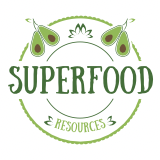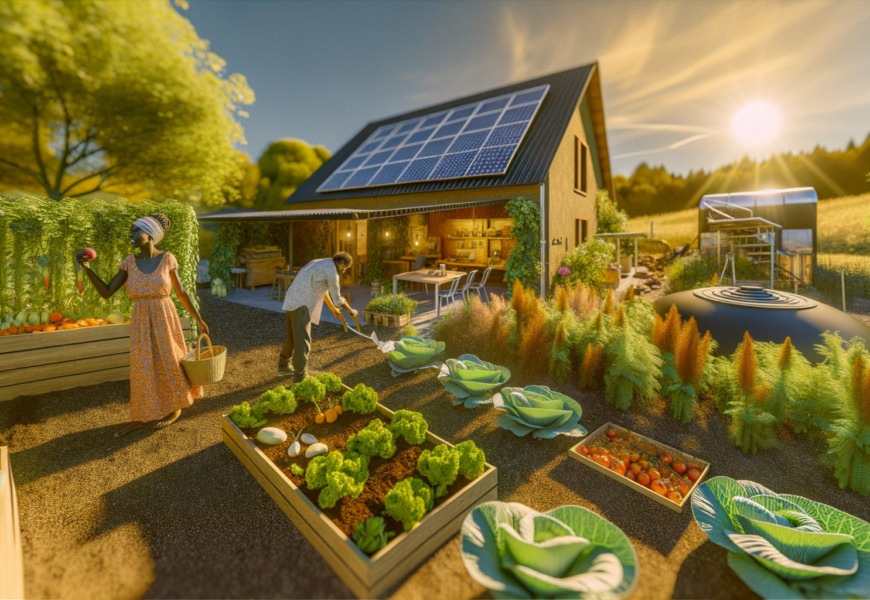Embrace Sustainable Living in 2024 with our comprehensive guide. Discover innovative practices, essential tips, and the latest trends to live eco-friendly and reduce your carbon footprint. Sustainable living is no longer just a trend; it’s a crucial lifestyle choice for a better future. As we enter 2024, the importance of adopting eco-friendly practices has never been more paramount. This guide will delve into the latest sustainable living practices, innovative tips, and emerging trends that can help you make a significant impact on the environment. Whether you're new to sustainable living or a seasoned eco-warrior, there’s always something new to learn. Let's explore how you can make 2024 your most sustainable year yet!
Understanding Sustainable Living
Definition and Importance
Sustainable living is a lifestyle that aims to reduce an individual's or society's use of the Earth's natural resources. This approach seeks to minimize the environmental impact by altering methods of energy consumption, transportation, diet, and general consumption behaviors. The goal is not only to protect the environment but also to promote equality and quality of life for all beings.
The Evolution of Sustainable Practices
Initially sparked by conservation movements and the oil crises of the 1970s, sustainable living has evolved dramatically over the years. Today, advanced technologies like smart home systems and renewable energy sources are making it easier for individuals to live sustainably. The societal shift towards sustainability is also driven by increased awareness of climate change impacts and the need for corrective action.
Benefits of a Sustainable Lifestyle
Living sustainably comes with numerous benefits, including reduced energy bills, improved health, and a smaller carbon footprint. Sustainable practices often lead to a more minimalist lifestyle, reducing clutter and promoting mental well-being. Additionally, sustainable living can support local economies and create a more equitable world.
Sustainable Living Practices for 2024
Energy Conservation Techniques
Solar and Wind Power
Renewable energy sources, such as solar and wind power, are becoming more accessible. Installing solar panels or investing in wind energy for your home can significantly reduce reliance on non-renewable energy.
Energy-Efficient Appliances
Upgrading to energy-efficient appliances is another effective method to conserve energy. Look for appliances with high Energy Star ratings to ensure you’re minimizing your energy consumption.
Smart Home Technology
Smart thermostats and home automation systems can optimize energy use, automatically adjusting heating, cooling, and lighting based on your routines and preferences.
Water Conservation Methods
Rainwater Harvesting
Rainwater harvesting systems can significantly reduce the reliance on municipal water supplies. Stored rainwater can be used for gardening, flushing toilets, or even for washing clothes.
Low-Flow Fixtures
Installing low-flow fixtures like faucets, showerheads, and toilets can greatly reduce your household water consumption without compromising performance.
Water Recycling Systems
Greywater systems, which recycle water from baths, sinks, and washing machines, can be used for landscaping or flushing toilets, reducing overall water usage.
Waste Reduction Strategies
Zero-Waste Shopping
Opt for products with minimal packaging, bring your own bags, and purchase in bulk to reduce waste. Many stores now offer sections dedicated to zero-waste products.
Composting
Composting organic waste reduces landfill reliance and provides nutrient-rich soil for gardening. Home composting systems range from simple backyard setups to advanced indoor bins.
Recycling Tips
Proper recycling practices are crucial for reducing waste. Always clean recyclables, separate materials properly, and check local guidelines to ensure compliance.
Sustainable Food Choices
Embracing Plant-Based Diets
Benefits of Plant-Based Eating
Plant-based diets are not only beneficial for your health but also have a lower environmental impact compared to meat-based diets. They require less water, land, and energy resources.
Resources for Vegan and Vegetarian Diets
There are numerous resources available to help transition to a plant-based diet, including online recipes, meal planning apps, and community groups.
Supporting Local and Organic Farms
Importance of Organic Foods
Organic farming avoids the use of harmful pesticides and fertilizers, promoting healthier soil and ecosystems. Organic foods are often more nutritious and free from harmful chemicals.
How to Find Local Farmers Markets
Supporting local farmers minimizes food miles, reducing your carbon footprint. Farmers markets and CSA (Community Supported Agriculture) programs are great ways to access fresh, local produce.
Growing Your Own Food
Tips for Urban Gardening
Even with limited space, urban gardening is possible. Containers, vertical gardens, and rooftop plots can produce a surprising amount of food.
Hydroponics and Indoor Farming
Hydroponics and indoor farming systems allow for year-round agriculture in urban environments. These methods are efficient and often yield more produce than traditional farming.
Sustainable Transportation
Benefits of Electric Vehicles
Electric vehicles (EVs) produce zero emissions, helping to reduce atmospheric pollution. With advances in battery technology, EVs are becoming more affordable and practical.
Utilizing Public Transport and Carpooling
Public transport and carpooling are effective ways to reduce your carbon footprint. By sharing rides, you not only save on fuel but also decrease traffic congestion and pollution.
Biking and Walking as Green Alternatives
Cycling and walking are excellent eco-friendly alternatives for short commutes. They not only reduce carbon emissions but also provide health benefits.
Sustainable Fashion and Beauty
Choosing Eco-Friendly Clothing
Understanding Fast Fashion’s Impact
Fast fashion contributes significantly to environmental degradation. The production process often involves harmful chemicals and massive waste.
Brands Committed to Sustainability
Many brands are now committed to sustainability, using eco-friendly materials and ethical labor practices. Look for brands with certifications like Fair Trade, GOTS, or B Corp.
Sustainable Beauty Products
Ingredients to Avoid
Avoid beauty products containing harmful chemicals like parabens, phthalates, and sulfates. These can be damaging to both your health and the environment.
Eco-Friendly Brands
Choose brands that offer natural and organic products, packaged in recyclable or compostable materials.
Sustainable Home and Lifestyle
Green Home Design Ideas
Eco-Friendly Building Materials
Opt for sustainable materials like bamboo, reclaimed wood, and recycled steel for your home. These materials have a lower environmental impact and are often more durable.
Energy-Efficient Home Designs
Design homes with natural light optimization, proper insulation, and energy-efficient appliances to minimize energy use.
Minimalism and Decluttering
Benefits of a Minimalist Lifestyle
Minimalism reduces consumption and waste, promoting a simpler, more intentional way of living. It can also lead to financial savings and less stress.
Tips for Decluttering Your Home
Adopt a room-by-room approach to decluttering. Donate or recycle items you no longer need and focus on keeping only what adds value to your life.
Mindful Consumption
Purchasing with Purpose
Buy products made from sustainable materials and from companies that prioritize ethical production practices. Consider the lifecycle of the products you purchase, opting for reusable or recyclable items.
The Role of Technology in Sustainable Living
Technology can support sustainable living through energy management systems, water-saving devices, and apps that help track and reduce your carbon footprint.
Conclusion
Sustainable living in 2024 is about making conscious choices that positively impact the world around us. From adopting energy-saving practices to embracing plant-based diets, every small step contributes to a more sustainable future. Start integrating these practices into your daily routine and inspire others to do the same. Together, we can create a healthier planet for future generations. Ready to embark on your sustainable living journey? Let’s make 2024 the year of sustainable change!










